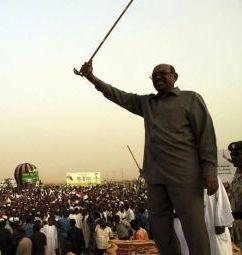Central African Republic: African Analysis, But Why No African Solution? – By Alex de Waal

 My recent Oped in the New York Times on the Central African Republic described a chronically bad situation that had predictably and unnecessarily got worse. Correct and prescient analysis by the African Union had been ignored a year ago.
My recent Oped in the New York Times on the Central African Republic described a chronically bad situation that had predictably and unnecessarily got worse. Correct and prescient analysis by the African Union had been ignored a year ago.
The major element of my argument on the French intervention in C.A.R. is the perils of crying “genocide.” But this begs the question, what was the correct response to the AU analysis and call for action?
The first element in a response would be that the imminent collapse of governance is a sufficient reason for concerned neighbors to engage, politically and through dispatching troops to provide security. There should no need to overdramatize such a situation.
A second element is that the resulting engagement is a political mission, with political methods and goals. There are no simple or perfect political solutions, but there are outcomes that are less imperfect than others. In the case of C.A.R., maintaining at least a vestige of constitutionalism and requiring the political contenders to negotiate within such a framework, would have been a far less bad outcome than the complete collapse of governance that has occurred. “Preserve what little is there,” is a good starting point for political intervention.
And the third key element is that African nations should have taken on the responsibility of acting themselves. C.A.R.’s neighbors collectively spend over $3 billion annually on their defense budgets. If, as seems to be the case, that the principal security threat facing African states is state collapse among their neighbors, then they should not have waited for a former imperial power to take action””they should have done it themselves. Only when the acuity of African political analysis is matched by Africa’s readiness to act on that analysis, will there be any prospect of Africa resolving its problems.
Alex de Waal is Director of the World Peace Foundation. This post was previously published on ‘Reinventing Peace’.







I think it is true that people and organizations should not categorize the conflict in Central African Republic, or any conflict, as genocide (or potentially a genocide) without an in-depth understanding of the cause and effects. People also should not ‘cry genocide’ simply to rally a nation into action. It is always hard to know who is behind the information you get and how their motives affect what they report.
I think it is very valuable to discuss possible solutions when talking about the conflict in Central African Republic rather than simply the events that are occurring.
The collapse of the Central African Republic’s government was inevitable with such sudden and quick changes in power. It does seem that the option of “Preserve what little is there†is in effect as the mayor of Bangui is the interim president. However with so many armed militias it is hard to quell the disorder and violence.
In theory intervention by neighboring countries of CAR is a first-rate solution. However the neighboring countries of South Sudan and Congo are taking care of their own domestic conflicts and probably don’t want to get involved in another country’s conflict. It is also hard for countries in the region that do have the means to intervene. Take the intervention of Chad for example. Chad sent peacekeeping troops into the CAR, however they were accused of aiding and being infiltrated by the Seleka and eventually pulled out their troops. Conflicts often extended beyond boarders and countries within the Central African region are more likely to get entangled in the conflict with hinders their role as ‘peacekeepers’.